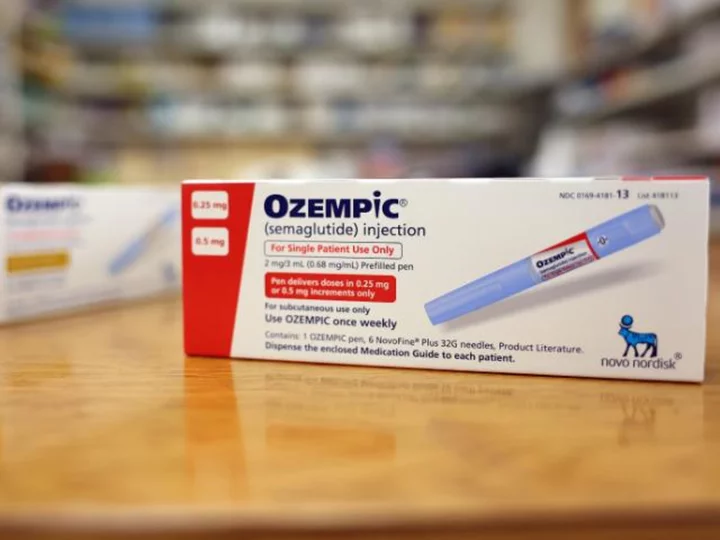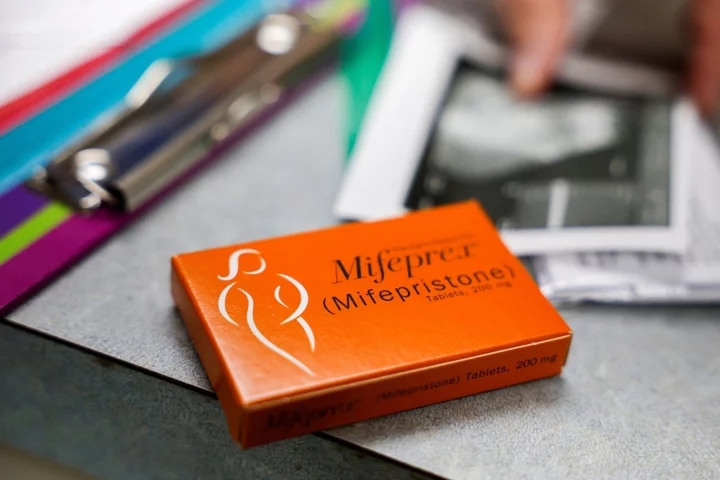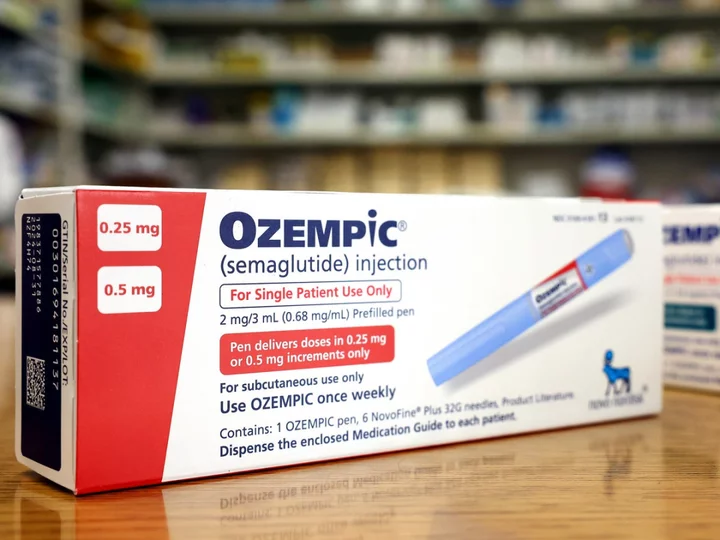In a lawsuit filed on Wednesday, a Louisiana woman is claiming she has suffered severe injuries due to her use of Ozempic and Mounjaro, which were prescribed by her doctor. The two injectable medications, developed to manage diabetes, have gained popularity for weight loss.
Attorneys for Jaclyn Bjorklund claim that the 44-year-old woman used Ozempic for more than a year until around July 2023 and then began using Mounjaro. She is suing the makers of both drugs, Novo Nordisk and Eli Lilly, for failing to warn of the risk of severe gastrointestinal events that could be caused by taking the medications.
"As a result of using Defendants' Ozempic and Mounjaro, Plaintiff was caused to suffer from severe gastrointestinal events, and as a result sustained severe and permanent personal injuries, pain, suffering, and emotional distress, and incurred medical expenses," the lawsuit alleges.
Bjorklund has suffered from "severe vomiting, stomach pain, gastrointestinal burning, being hospitalized for stomach issues on several occasions including visits to the emergency room, teeth falling out due to excessive vomiting, requiring additional medications to alleviate her excessive vomiting, and throwing up whole food hours after eating," it adds.
The lawsuit claims that the two companies, Novo Nordisk and Eli Lilly, "knew of the association between the use of GLP-1 receptor agonists and the risk of developing severe gastrointestinal issues, including gastroparesis and gastroenteritis."
Their "failure to disclose information that they possessed regarding the association between the use of GLP-1 receptor agonists and the risk of developing severe gastrointestinal issues, including gastroparesis and gastroenteritis, rendered the warnings for this medication inadequate," it continues.
Vomiting and abdominal pain are both listed as possible adverse events on prescribing information for Ozempic and Mounjaro, and the lawsuit does not say whether Bjorklund was diagnosed with gastroparesis — stomach paralysis.
The lawsuit is seeking compensatory and punitive damages for past and future pain and suffering Bjorklund will have including health care costs and medical monitoring as well as her attorney's fees and court costs.
Novo's Ozempic and a similar drug, Wegovy, utilize the same medication, semaglutide. Eli Lilly's Mounjaro uses tirzepatide. These and other drugs in this family, which includes medications like liraglutide, work by mimicking a hormone that's naturally made by the body, GLP-1, that slows the passage of food through the stomach, which helps people feel fuller longer.
Separately from the new lawsuit, CNN has reported on warnings from patients and doctors of gastroparesis and other side effects after taking Wegovy and Ozempic for weight loss or diabetes.
Stomach paralysis, or the slowing of the stomach from emptying, may lead to nausea and vomiting in some patients. It can have many causes, including diabetes, which is a reason many people take drugs. Women are known to be at higher risk for the condition.
Doctors told CNN that more cases are coming to light as the popularity of the drugs has soared. In a statement before the lawsuit, the US Food and Drug Administration told CNN it had "received reports of gastroparesis with semaglutide and liraglutide, some of which documented the adverse event as not recovered after discontinuation of the respective product at the time of the report."
Ozempic's prescribing information says the most common adverse events related to the drug are nausea, vomiting, diarrhea, abdominal pain and constipation. Under a section on drug interactions, it says that Ozempic delays gastric emptying, which may impact absorption of oral medications.
Mounjaro's prescribing information also says nausea, diarrhea, decreased appetite, vomiting, constipation, dyspepsia, and abdominal pain are the most common adverse events, and that Mounjaro delays gastric emptying, which may impact medication absorption.
In a statement to CNN responding to stomach paralysis concerns prior to the lawsuit, Novo Nordisk, the maker of Ozempic and Wegovy, said, "Gastrointestinal (GI) events are well-known side effects of the GLP-1 class. For semaglutide, the majority of GI side effects are mild to moderate in severity and of short duration. GLP-1's are known to cause a delay in gastric emptying, as noted in the label of each of our GLP-1 RA medications. Symptoms of delayed gastric emptying, nausea and vomiting are listed as side effects."
Responding to the new lawsuit, a spokesperson for Novo Nordisk told The Hill, "Patient safety is of utmost importance to Novo Nordisk. "We are continuously monitoring the safety profile of our products and collaborate closely with authorities to ensure patient safety, including adequate information on gastrointestinal side effects in the label."
In a statement obtained by The Hill, a spokesperson for Eli Lilly, maker of Mounjaro, said that patient safety is the company's "top priority," and that they "actively engage in monitoring, evaluating and reporting safety information for all our medicines," the news outlet reported.
CNN has reached out to both Novo Nordisk and Eli Lilly for comment on the lawsuit.









